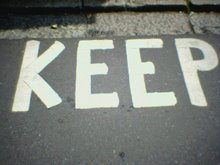[from panel on Strategies vs. Tactics through the lens of lastness as it pertains to the last days of the perfomance company Goat Island]
I hear the word strategy and I hear the word tactic and I think.
I think: money and strength and soldiers and marketing and games of war, I think war. I think: politics. Think: life or death. Think: survival. Think.
If not this, then what.
Think: I have a plan and it will result in my happiness.
And then think what we are doing here.
Absence. Avoid absence. My absence and those I need around me. My things. Think what is missing. What have I lost? How can I go on? What has taken my happiness? Why do I feel so alone?
Here in this country we are not, in the theater, on solid ground. In performance even less so. Performance is by its nature ephemeral. It dies the moment it is born and must be born again each time. It does not continue except as it resonates within the people who take it in.
We have no power over death.
This is the end. Everything we have is going to change. All of our instincts and those of our ancestors were to focus on survival. Survival in the primitive sense means finding a sustainable way of life and then protecting it. Change is not desirable. Change requires new plans, new dangers to learn, new obstacles to sustaining life. Get a plan and keep it going. That is our animal goal. But we are more complicated than that and we can change and change brings fresh ideas and new horizons.
How do we change? How do we resist the force of nature, the objective to save our habits, to bend to a plan that is safe?
Change comes to us in two ways: change that we choose and change that we cannot avoid.
Ultimately it is “nothing” that we are afraid of and that “nothing” represents loss and it represents death but we have to move toward difficulty we have to go beyond our fear of death and transform it using the power it has over us.
In response to the decision to end I think I said good, that explains the past few months. I think I said good, that solves my unsolvable problems. I will simply allow them to remain unsolved, that’s how I will solve them. Then I said: It must be my fault. This radical change is coming about because I am intolerable. I have grown a stench about me so strong that the people I work with can no longer continue in my presence. They will break up now and then reconfigure without me. This is easy enough to think about. Then I thought depth charge. There is no way I can survive in this new world. Then I thought I need something to wipe away my tears. I can’t breath. I am lost. The whole of my life is over with this change.
Just as the haiku composer avoids direct revelation of its subject, Goat Island has a silence at the heart of our work which the audience fills with its own material. And just as an afterimage flashes on the white space of a clean piece of paper so do the events of our performances project into the pauses embedded there for their development and imprint.
I remember the empty moments of my youth as if that is where the nurturing of my life took place. What thoughts came together in the moment from which I have an image of a sky ringed by tall grasses with only the sound of the wind as it whispered through them or the moment on the sparkling beach in which I looked up from the sand and my whole world seemed to have healed in the circle grown so small around me that day? A day in which nothing happened.
Simone Weil, the French philosopher, wrote: “To love truth means to accept the void and, as a result, to accept death. Truth is on the side of death.”

In the United States right now there is a kind of irrationality born of fear. People are acting out of it. Fear of death grips us and makes us do things we wouldn’t otherwise do, make choices we wouldn’t otherwise make. In our piece When will the September roses bloom? Last night was only a comedy Goat Island performs silence. Silence reminds us of our ephemerality, of our end, or of the day things stop for us or for everyone. As an audience, silence allows us time to think: about ourselves, our seat, the people opposite, or the fleeting thoughts and associations we are having in relation to the performance we are watching. Some people experience a kind of falling into the void of silence, others find a space opening up and filling with thoughts. For some it is terrifying to be left with our own devices, our own thoughts. Waiting for something to happen brings on existential crisis.
When, in performance, we stop and signify the void we are signifying death and contemplating it and our own imperfections. And we are becoming used to this. If, over time, we become comfortable with it, it becomes less something that provokes fear and more something that provokes contemplation.
each wave, momentary
the roll, the kick
narrow winding
bridge arching
sand outstretched
each wave, momentary
the waves, continuous
It happened again, green
soft, bright, new first time
this air was breathed
the morning caught in its clear fine round
drops of water lined up on the blade of grass.






No comments:
Post a Comment